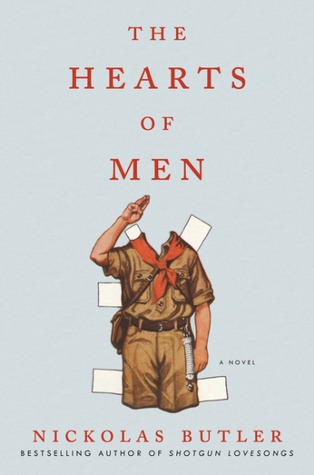
I read this for bookclub.
About the Book
Camp Chippewa, 1962. Nelson Doughty, age thirteen, social outcast and overachiever, is the Bugler, sounding the reveille proudly each morning. Yet this particular summer marks the beginning of an uncertain and tenuous friendship with a popular boy named Jonathan.
Over the years, Nelson, irrevocably scarred from the Vietnam War, becomes Scoutmaster of Camp Chippewa, while Jonathan marries, divorces, and turns his father’s business into a highly profitable company. And when something unthinkable happens at a camp get-together with Nelson as Scoutmaster and Jonathan’s teenage grandson and daughter-in-law as campers, the aftermath demonstrates the depths—and the limits—of Nelson’s selflessness and bravery.
The Hearts of Men is a sweeping, panoramic novel about the slippery definitions of good and evil, family and fidelity, the challenges and rewards of lifelong friendships, the bounds of morality—and redemption.
My Review
Back and forth story about how some are born and grown to be good, courteous, responsible leaders, and others...not so much.
Set in Wisconsin at a Scout camp, the author explores a lonely young man, nicknamed the Bugler, from a dysfunctional 1960s family who grows up quickly when his father does a runner. The book is set in parts in different generations. Bugler's only "friend" is Jonathan and his only role model is aged scout camp director, Wilbur. While we have plenty of reason to suspect Jonathan's friendship, Wilbur's tutelage has a purpose all along: to guide and groom the young man into leading subsequent generations of young men to be good, courteous, and responsible. To be prepared.
Section two opens with Jonathan's family, and section three, again with Jonathan's family's next generation. The author gives us characters, invests the reader with them, then drops them, or portrays them through the eyes of others. He taunts the reader with secrets about the characters's lives and reveals some of them herky-jerky style, through flashbacks and introspection.
The setting is its own character, the camp and the wildlife, the lake, all show the effects of mankind's invasion. Not all who aspire to Scouting's honors are good; certainly not all who achieve them, and there's even a kind of righteous attempt to shelter Jonathan's daughter-in-law, who brings her son to camp, when the men attempt to run her off. Bugler can't be Wilbur, never tries to, and finally, when his true heart is opened, the results are triumphant and far-reaching.
Told through both multiple perspective and omniscience, in mostly present tense, the pace is slow and purposeful in each segment, generously describing setting and action with lyrical, long passages interspersed with language of events and culture meant to contrast and compare. The generational jumps are dizzying.
No comments:
Post a Comment